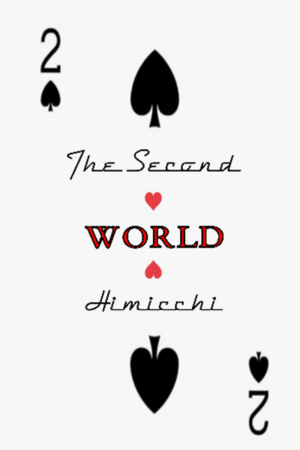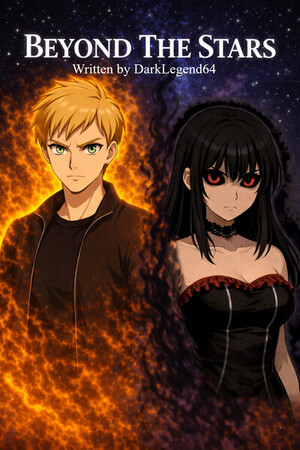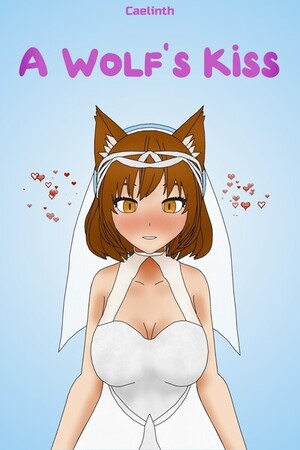Chapter 4:
Chestnut Green
Fairy Life in the Second World
The Gaufhorn was the soul of any dwarven celebration. It was an instrument with a rumbling, chesty voice meant to resemble the call of a warhorn, but with a subtle, airy undertone that whispered along its music. Most of the people we knew were dwarves, as there were more such dwarves than anybody about Tinborough.
There were only a half dozen fairy families about the city, and they all sat near the high table at the morning’s first picnic; there were two to be named and a handful of others that people made on their own. The first morning picnic was always the most important, and people always brought their own food, so there was nothing unexpected about it all. That was all in Chestnut Green, a meadowy park near the base of Mount Addor.
The goblins had taken a large swath of the lawn for themselves, where they’d erected wooden pikes in the ground, and stuck on them large chunks of mutton and pheasant. Bit by bit, they’d tear off some of the meat throughout the day, and hold it over the fire in their own claws until it was cooked. Any goblin would have said that the juices of the raw meat sticking to their hands only improved the taste.
A group of catfolk took their leave to the Gale Parks not two miles south of Chestnut Green, where they took to hunting little mammals that they happily carried back not three hours later. And, on their return with their tails swishing behind them, they hummed an old marching tune from their many wars against the catgirl clans. Any of them would be very firm that catfolk and catgirls, who looked all around the same, were quite totally different.
The official bounds of the celebration ran along the perimeter of Chestnut Green which was now surrounded in scarecrows, for fairies found birds quite dangerous and twice as frightening. Even the scarecrows were redundant beside the grand totem poles the old dwarves had erected in the center of Chestnut Green, once markers of the edges of their lands around Mount Addor, now an attraction in the middle of an ever-growing city. Each etched dwarven head in the totems was made of a different sort of material, and they always had the most gleaming starglass at the very top.
There was timberwine at every table, brought by the wood elves. They were always protective of the drink, for each bottle took the felling of a centenarian tree to create. And, after that, they were oft aged for another century or two. This was the contribution of my father, who worked alongside the elves in the consulate. One sip of timberwine made me shiver from the tips of my toes to the ends of my wings. The digestif had a deep, earthy flavor like a thick black tea, and it was as warm in my throat. But, I had no more of it than that one taste.
In my last life, I loved a good drink, but only ever one at a time. Particularly, I’d adored whisky which was all around much stronger than some timberwine. But, my tongue was not the same as last night’s memories had presented it, and the weight of liqueur fortified as timberwine, similar to a sherry, was bitterer and unenchanting.
They lined up my gifts inside a circle of brown-and-red spotted mushrooms. Some were adorned in colorful cloth wrapping, but others were barely covered by a ragged cloth or simply discarded on the ground without any kind of container. What I’d been given for my sixth and fifth and all the other birthdays before that were little toys and dolls and knick knacks that I’d ultimately consider once before forgetting altogether. It was these Sevenday gifts that were far more practical. Most common were pretty dresses made of silk harvested in Nogham or Greicester Point. Clothing for fairies was quite expensive, since it had to be made quite finely for how small we were, and precisely to incorporate holes for wings to fit through. The chairman of the goblins gave me a perfectly dead and stuffed spider as some sort of decor. Mr. Tankard, my father’s second cousin, gifted a crystal of starglass, which must have been worth more than some small homes. And, it was all nothing but the sketchbook my mother gave me.
She’d been doodling in it from the day I was born with a little pencil. They were light drawings, almost faded, but there was one of me as an infant, and another of me the first time I flew. And, a few of my father holding me, and another where I was standing beside my mother. But in the very back of the book, on the very last page, she had drawn a scene from the story I told her late last night. She imagined the skyline of Manhattan and me looking out at it back on Earth, and even though it wasn’t perfect, I knew what it was supposed to be.
It was in all and two more ways a perfect day. Nothing was wrong or ill or interrupted. And, in the warmth of a large dessert after supper, a good deal started away back toward their homes. I sat on the end of the high table in the very middle of Chestnut Green, watching the moon rising past the horizon. I was disturbed by slow, uneven footsteps down the gravel path that bisected the park.
“Jane you was?” Half-sang, half-whispered a tall human just down the road. Long, black robes surrounded him, and he leaned over a gnarled walking stick. I’d have told him he simply had the wrong place, except I remembered hearing that name in my dream last night, and that it had been my own name in the last world.
I turned slowly, dangling my legs off the edge of the table, and letting my wings spread out behind me. “Who goes there?”
He lowered his black hood to reveal that he had no body at all beneath the black robes. No hand grasped the walking stick he leaned on, and up close, there was a long, curved blade at the end of his scythe. “Death, an’ nae more.”
My mother flew across the table and threw her arm out in front of me, “This is no funny prank, sir! You will leave here at once, or else you will be taken away by the constable when I yell for him.”
The cloak of Death jerked backward as if his invisible body had flinched. “Do nae misrepresent me, m’lady.” He bowed, evident from how his cloak bent over, “I task nae departure of thine, nor take from the. There stand presents here, and I be not a fair guest shall I forget mine own.” The sleeve of his cloak pushed outward, but there was nothing in his invisible hand.
“What do you mean?” I asked him.
“Jane,” he addressed me again, “Thou hast been entitled one warning. Thine kinswoman, thine mother, bears a curse. Does she know this?” He turned to my mother.
“I do not,” she squinted at him.
“There is one annum for thee,” croaked he, “but I care not to warn of doom, shalt it be unmovable. There is decay under those bones. Hana, once-Jane, be it known what thine chance could be. But, you can save your mother.”
“How?” I flew quickly toward him, my wings flicking back and forth behind me as quickly as they could manage. I leaned forward, getting as close as I could to Death, as if to hear him better.
“I tell not where. I tell not how. You will be there, or you will be here forevermore.” The hem of his cloak burst into flame that quickly overwhelmed the rest of Death, who disappeared entirely in a puff of smoke.




Please sign in to leave a comment.